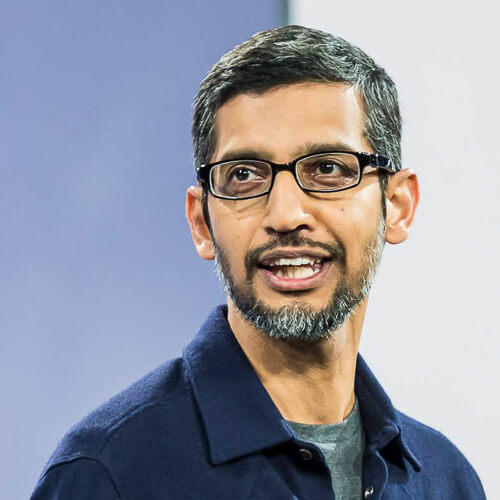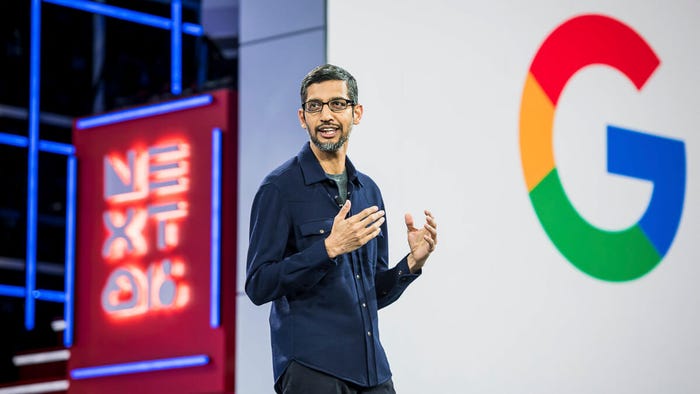Companies shifting their advertising online boosted YouTube's ad revenue by 32%, and Alphabet's overall revenue by 14%.

Companies moving their advertising online because of the coronavirus pandemic boosted the revenues of Google's owner Alphabet by 14%.
With third-quarter revenues of $46.2 billion, Alphabet handily beat Wall Street analysts' expectations of $42.8 billion.
Figure 1:  Spelling it out: Online advertising has proved the charm during the coronavirus pandemic for Alphabet.
Spelling it out: Online advertising has proved the charm during the coronavirus pandemic for Alphabet.
(Source: Light Reading)
The sunny news for Sundar Pichai's company proved a handy recovery, after a second quarter where overall revenues dipped by 2%, advertising revenue dropped 8%, and search advertising fell 10%.
Just Google it
People do turn to Google quite a lot in during these COVID-19 times, Pichai notes on a conference call.
"Whether it's finding the latest information on COVID-19 cases in their area, which local businesses are open, or what online courses will help them prepare for new jobs," businesses and consumers use Google to get back on their feet, he says.
As one example, a spike in Google searches for "loss of taste" and "loss of smell" seem to signal a coming increase in new coronavirus cases.
Meanwhile, YouTube advertising proved the real star, soaring 32% in this latest quarter after a 6% rise in the previous one.
On YouTube, "as a sign of the times, views of guided meditation videos are up 40% since mid-March, while DIY face mask tutorials have been viewed over 1 billion times," says Pichai.
And Google's advertising revenue grew by 10% in the third quarter.
Clouds ahead
Google has slowed its rate of headcount growth because of COVID-19, says its chief financial officer, Ruth Porat.
Still, there are 4,623 more employees working in the Mountain View Googleplex and its other sites now than in the previous quarter; 132,121 overall.
Questions related to the pandemic are more searched than sports or music (and even elections) in every state. Here's an update on how Google is contributing to keep people safe and helping to get American businesses back up and running. https://t.co/Su9Aw3lI0M
— Google (@Google) October 27, 2020
And most of these new hires are engineers and product managers working in Google Cloud.
Cloud is a big focus for Pichai's company these days.
He calls it a "highest priority" area, and Google Cloud's revenues, $3.4 billion, were up 45% from the third quarter of 2019.
A fortnight before, Nokia had announced it is migrating around 30 of its data centers in 12 countries onto Google's cloud.
Chasing clouds
Google is part of a "rapidly growing chasing pack" chasing the heels of Amazon's global dominance in cloud infrastructure market share, says John Dinsdale, an analyst at market research firm Synergy Research Group.
Google has 9% of the worldwide market at present, after Amazon's 33% and Microsoft's 18%.
And pursuing Google, Alibaba and IBM both have 5%.
Part of this is "frankly, the fact that we were later relative to peers," admits Porat.
These are also slices of a fast growing pie.
Video content, which has to live somewhere, currently represents over 60% of global data, but by 2021 this is predicted to make up 82% of all Internet traffic, says Charlie Horrell, chief executive of media management platform Imagen.io.
And the interface between hosting and searching through all this video content on the cloud is just going to get more important, too – somewhere Google, which knows a thing about search, might have a trump card.
We currently spend up to eight hours a week simply searching for content, says Horrell.
Big days for big tech
Meanwhile, Alphabet's stock jumped 5% the day ahead of its earnings, with a similar rise by Facebook, and a 3% jump by Amazon.
Together, this added $230 billion to the three companies' market capitalizations.
Want to know more about cloud-native networks and NFV? Check out our dedicated cloud-native networks and NFV content channel here on Light Reading.
That is, more than the value of Walt Disney.
Google's expectation-beating results offer further proof of something no one doubted: the pandemic is accelerating existing trends toward streaming videos, searching the web and shopping online.
But the pace at which it's doing this is quicker than most expected.
Related posts:
— Pádraig Belton, contributing editor special to, Light Reading
About the Author(s)
You May Also Like











